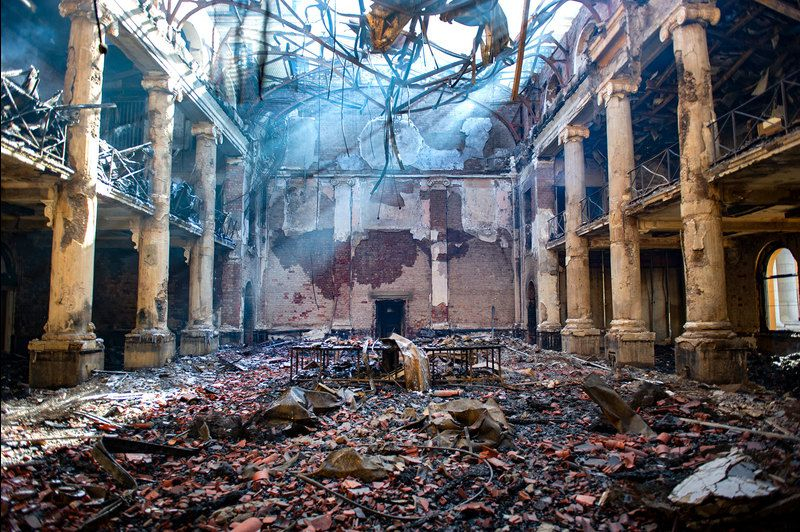Reports from the University of Cape Town have revealed that the entire contents of the Jagger Reading Room, along with six other buildings, were destroyed by the fire that swept through Table Mountain last week.
According to a statement released by UCT, the fire destroyed the galleries, adjacent stores, and offices and gutted the roof of the Jagger Reading Room. The archival and published collections stored in the Reading Room were destroyed. This includes most of the African Studies published print collections, about 70 000 items, the 3500 African Studies DVD’s, all the UCT university calendars, government publications from South Africa and across the continent, and a collection of manuscripts and archives that had been recently digitised or were about to be processed or digitised.
The African Studies Collection was started in 1953 and featured national imprints from across Africa, as well as materials published in North America and Europe. The collections included works in gender studies, media studies, HIV/AIDS, and conversations about the discipline of African Studies. The archives also featured an important collection on Southern African languages which was donated to the university in the 1950s and included religious texts, dictionaries, and school textbooks. Many of these titles in these collections date back to the nineteenth and early twentieth centuries and were extremely rare.
The library was named after JW Jagger, who was a major patron to the UCT Libraries in the early twentieth century. The building dates back to the 1930s, where it functioned as the main library, then the short loans centre, and then the reading room of the African Studies centre from 2000 to 2011, before the university started a restoration project to restore the main hall to its original condition.
The Conversation spoke to UCT academic, Shannon Morreira, about why this loss is so significant. Moreira says that the loss of any archive is a tragedy because it is a loss of voices that may offer an alternative history. She said, “This has particularly significant implications for countries like South Africa with fraught and contested histories. And whose histories have, for centuries, been told from a particular vantage point.” The archive provided access to knowledge and information that had been neglected in the past.
A mapping exercise has allowed the contents of the reading room to be identified, but a full assessment can only be conducted once the building is safe to enter. Once donors and owners of special collections stored in the UCT libraries are informed, an extensive list of what was lost will be made available. The UCT library staff also expect residual damage from the flooding of the building and potential seepage into other spaces and two basement storage units. The UCT Libraries Special Collections, housed in the Jagger Reading Room and other locations across the university, consisted of the African Studies Collection, Rare and Antiquarian Books, Maps, Films and Videos, Newspapers, Pamphlets, Journals, Magazines, and photographs.
UCT’s vice chancellor, Professor Mamokgethi Phakeng, said that Sunday was a difficult day for UCT and its libraries because the loss of the libraries will be felt so deeply. She said, “We cannot replace the treasures of scholarship we have lost, but we can create new treasures out of our own scholarship. In the same way, each of us can rebuild our own sense of purpose out of this tragedy. Our colleagues in the libraries have a long road ahead of them and many of us feel the devastation of the loss of this significant institutional asset but we will walk this road to rebuild our facilities together.”
The University of Cape Town has issued a call for academics and researchers from around the world who have photocopies or images of documents of these special collections to contribute to recovering the materials lost in the fire. These contributions will be collated by Dr Maha Rafi Atal, at Copenhagen Business School, who will pass them on to UCT.
According to Dan Plato, Cape Town’s executive mayor, although it has been sad to watch these historic buildings burn down, some materials were saved by the fire doors. Plato said, "It is tragic that literary treasures have been lost at the UCT library, but I have been informed that some of the most valuable works were saved by the quick activation of roller doors."
Table Mountain National Park reported that the Rhodes Memorial Fire started last Sunday morning around 9 am and spread rapidly because of heavy winds, high temperatures, and very old pine trees and their debris.
The fire was contained on Monday. According to city officials, a man in his thirties was apprehended and taken into custody for a possible connection to starting the fire.


